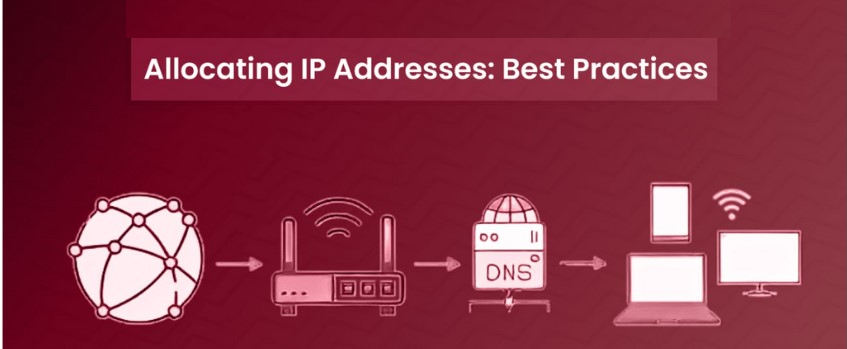Blog
IP Address Lookup and Allocation Best Practices: Ensuring Efficient and Secure Network Management
- April 6, 2024
- Posted by: admin
- Category: Technology

Introduction:
In the realm of networking, the proper allocation and management of IP addresses are critical for maintaining a robust and secure network infrastructure. Whether you’re a seasoned network administrator or a novice enthusiast, understanding the best practices for IP address lookup and allocation is essential. In this blog post, we’ll explore the key considerations and strategies for effectively managing IP addresses to ensure efficient and secure network operations.
Plan Ahead:
Before allocating IP addresses, it’s essential to develop a comprehensive IP address plan that aligns with your organization’s network requirements and growth projections. Consider factors such as the number of devices, subnets, VLANs, and future expansion needs. A well-defined IP address plan lays the foundation for efficient address allocation and minimizes the risk of address conflicts and subnet exhaustion down the line.
Utilize IP Address Management (IPAM) Tools:
Invest in IP Address Management (IPAM) tools to automate and streamline the process of IP address allocation, tracking, and management. IPAM tools provide centralized visibility into your IP address space, enabling you to efficiently allocate addresses, detect conflicts, and maintain accurate records of IP assignments. Look for IPAM solutions that offer features such as DHCP (Dynamic Host Configuration Protocol) integration, subnetting support, and customizable reporting capabilities.
Implement Hierarchical Addressing:
Adopt a hierarchical addressing scheme that organizes IP addresses into logical groupings based on location, department, or function. Hierarchical addressing simplifies IP address management by providing a structured framework for allocation and delegation. It allows network administrators to easily identify and troubleshoot IP address issues, enforce access controls, and optimize routing efficiency.
Leverage DHCP for Dynamic Address Assignment:
Deploy Dynamic Host Configuration Protocol (DHCP) servers to automate the assignment of IP addresses to client devices dynamically. DHCP eliminates the manual overhead of IP address assignment and ensures that devices receive valid IP configurations automatically. Configure DHCP scopes, reservations, and lease durations according to your organization’s requirements to optimize address utilization and minimize address conflicts.
Implement IP Address Reservation and Exclusion:
Reserve static IP addresses for critical network infrastructure devices such as servers, routers, switches, and printers to ensure consistent connectivity and accessibility. Additionally, exclude reserved IP addresses from DHCP address pools to prevent dynamic assignments that may interfere with static configurations. Maintaining a clear distinction between reserved and dynamically assigned addresses helps avoid configuration errors and network disruptions.
Regularly Audit and Update IP Address Assignments: Conduct periodic audits of IP address allocations to identify stale, unused, or unauthorized addresses that can be reclaimed and reallocated. Update IP address documentation and inventory records to reflect any changes in network topology, device configurations, or address assignments. Regular audits help maintain the integrity of the IP address space, optimize address utilization, and enhance network security by eliminating unused or unauthorized addresses.
